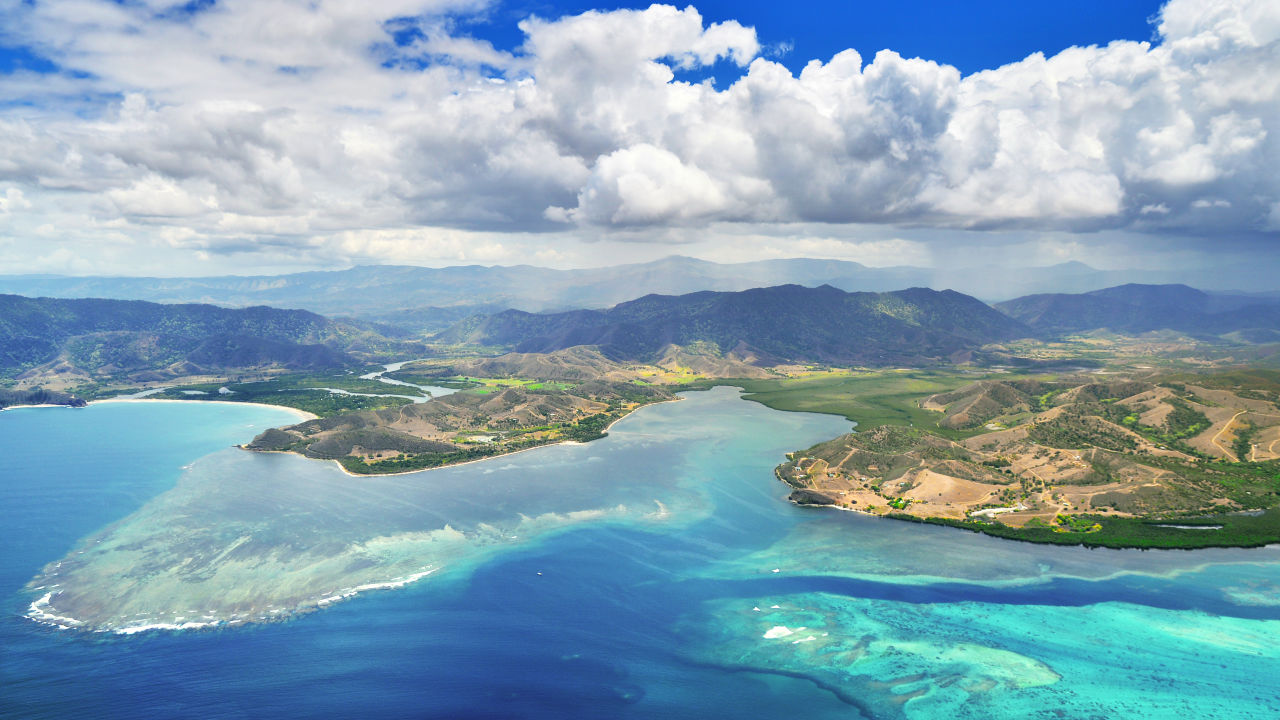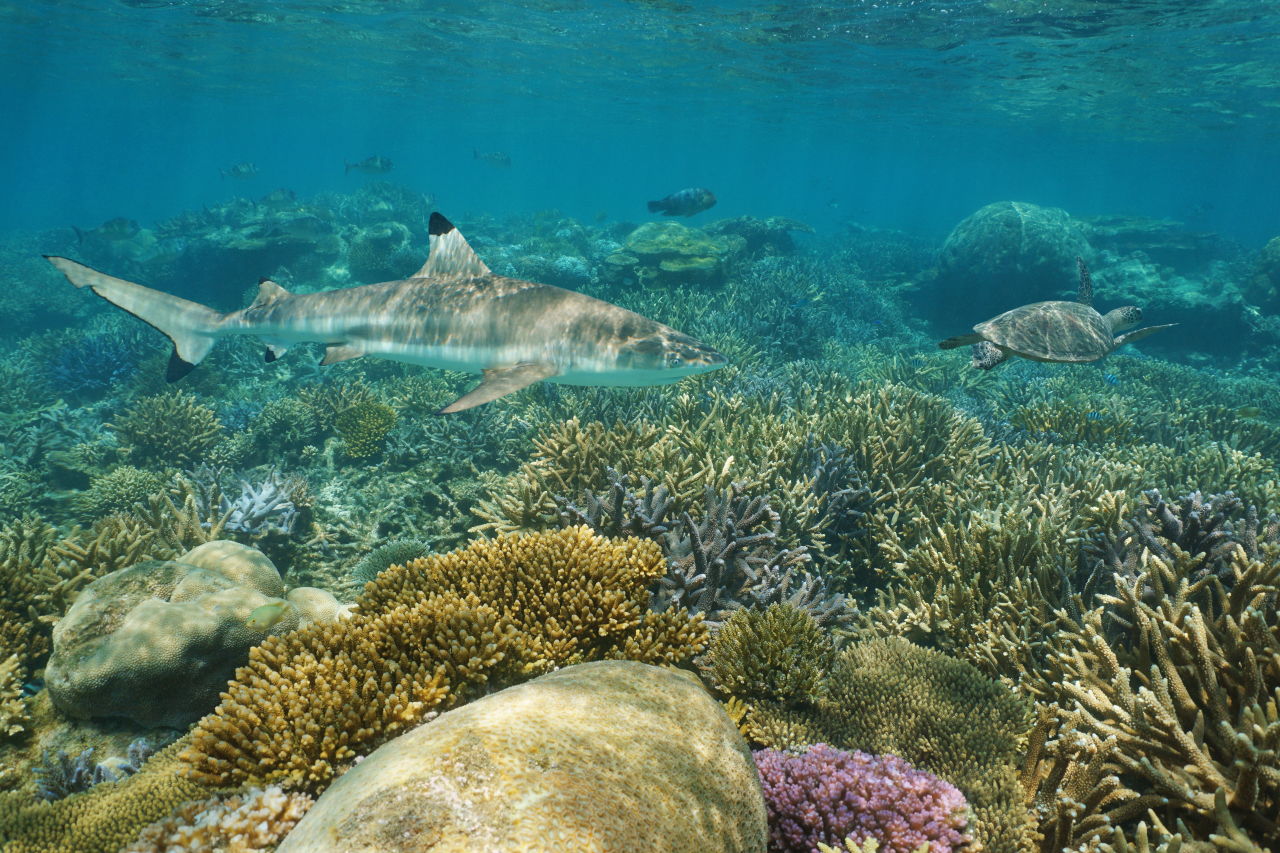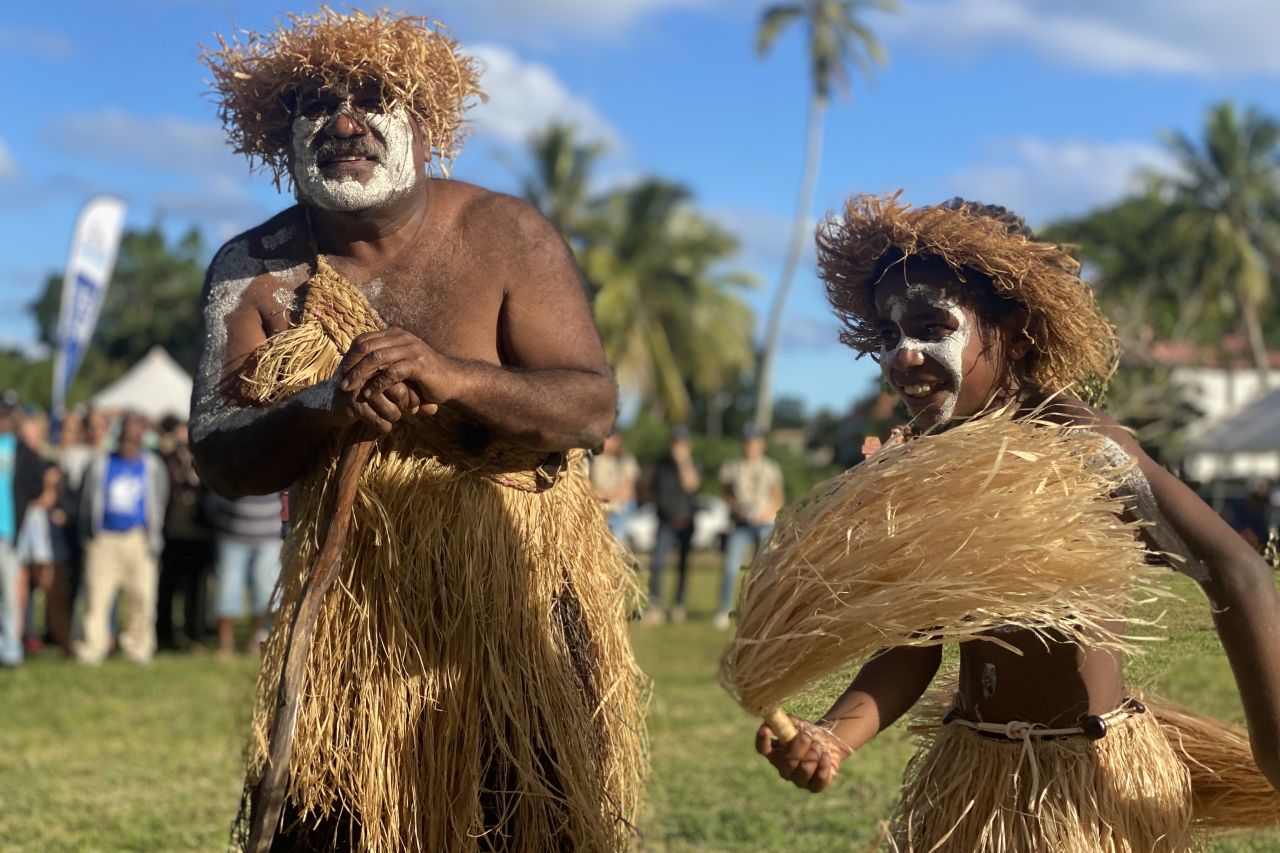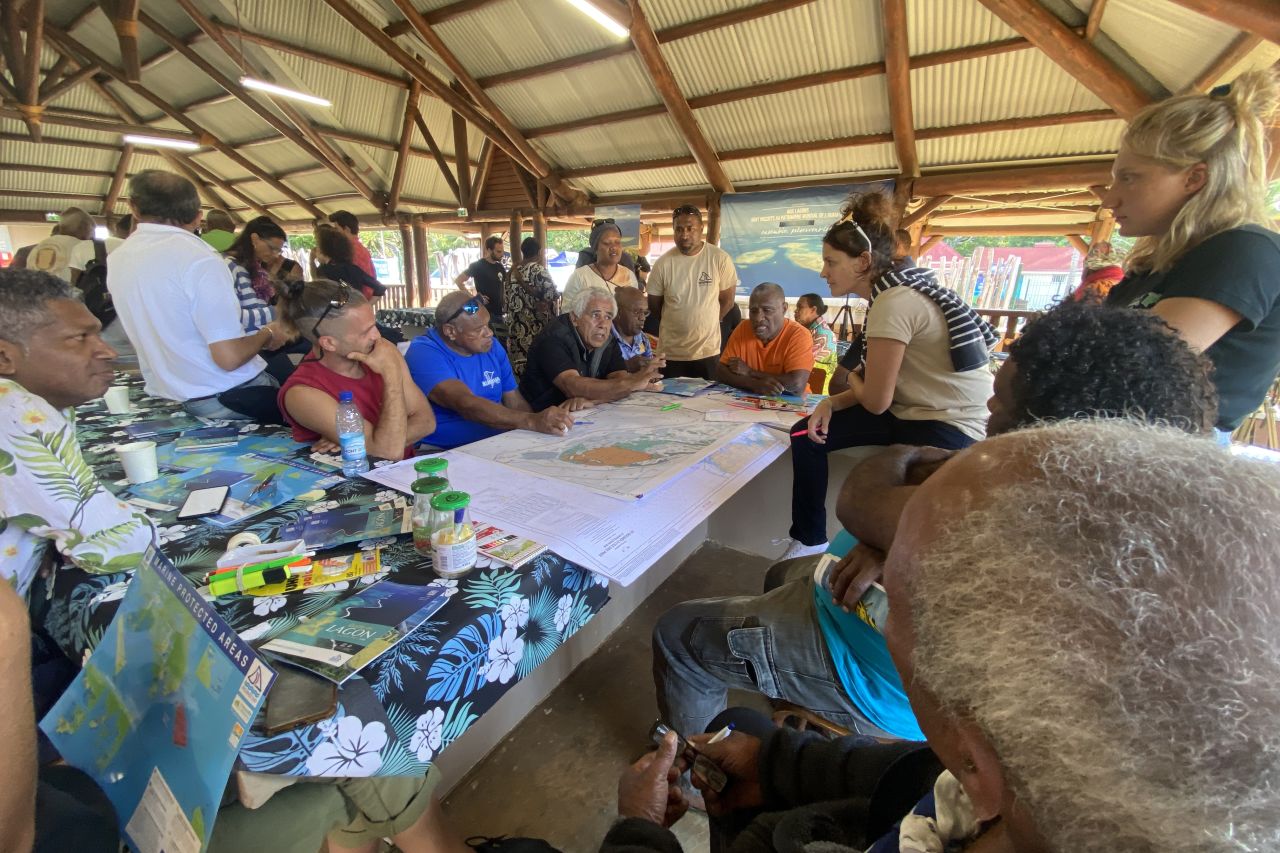News ·
Helping New Caledonia’s coral reefs survive climate change

Nestled in the South Pacific Ocean, the Lagoons of New Caledonia are a bucket list destination for divers and marine lovers the world over.
Home to the second largest barrier reef on the planet, this incredible ecosystem boasts the world’s most diverse concentration of coral species. The lagoons and coral reefs are teeming with marine life, including a phenomenal range of corals and fish, and several iconic and endangered marine species such as turtles, whales and dugongs. In fact, New Caledonia has one of the largest dugong populations in the world, supported by a vast network of seagrass meadows.

The lagoons and coral reefs boast the world’s most diverse concentration of coral species.
The indigenous community, the Kanak people, are the Customary Owners in the region and this community makes up almost half the archipelago’s total population. There are 292 tribes across New Caledonia’s 60 districts, which are split into eight customary areas.
The local communities living along the coast depend on the sea for food, employment opportunities, cultural connection and environmental protection. Coral reefs, seagrass beds and mangroves are important natural barriers to coastal erosion, and are a strong driver of tourism, and therefore employment, in the region.

The Kanak people are New Caledonia's Customary Owners. Credit: Matthias Balagny
The archipelago’s rich ecosystem and natural beauty were formally recognised in 2008 when the lagoons were designated a UNESCO World Heritage Site. And while the region has so far been less impacted by coral bleaching than other reefs around the world, it is facing a range of threats.
The latest round of monitoring shows around 23% of New Caledonian reefs are deteriorating due to climate change, which is causing heat stress and more frequent and severe weather events such as cyclones which damage reefs. In addition to these global pressures, soil erosion and over-fishing are significantly impacting the health of local reefs.
Determined to protect their precious marine ecosystems, local reef managers and coastal communities have joined a global initiative to help their reefs adapt to the changing environment.

Reef managers assess local threats and find solutions to help coral reefs. Credit: Bec Taylor.
#Building resilient coral reefs
The global Resilient Reefs Initiative (RRI), launched by the Great Barrier Reef Foundation in collaboration with UNESCO, supports World Heritage coral reefs and the communities that depend on them to adapt to climate change and other local threats.
New Caledonia is one of the pilot sites in the initiative, alongside the Belize Barrier Reef, Ningaloo Coast in Western Australia, and the Rock Island Southern Lagoon in Palau.
RRI is built on the fundamental principle that healthy reef ecosystems depend on people, and people depend on healthy reef ecosystems. We partner with reef managers to help assess local threats and find new solutions to help coral reefs adapt and thrive.

The RRI global team collaborate on project designs and solutions. Credit: Bec Taylor.
In New Caledonia, we’ve partnered with the New Caledonian Biodiversity Agency (ANCB) and together we’ve designed a strategic guidance document for the resilience of New Caledonia’s coral reef and associated ecosystems. This strategic direction will help the archipelago’s coral reefs and ecosystems – including its incredible marine life – to overcome the threats they’re facing.
This document is the result of a consultation process with local communities, reef managers, local government, NGOs, local research bodies and international experts. A workshop conducted in 2020 with more than 200 stakeholders identified the main challenges for the management of New Caledonia’s marine ecosystems, including the lack of integration of science into decision making and implementation measures, insufficient funding for appropriate management, and the complexity of governance because of the division of environmental responsibilities between three local authorities.
This workshop also led to the development of a common framework to guide future initiatives led by local reef managers. The strategic guidance document identifies three themes under this framework: Marine and coastal ecosystems, Local pressures on marine ecosystems and Resilient governance. Each theme includes a list of key priorities to address, and specific on-ground projects that will lead to better outcomes for the local marine environment.

Community engagement leads to better conservation outcomes. Credit: Matthias Balagny
#Our impact so far
Already, the Resilient Reefs Initiative has funded 12 projects to increase the resilience of New Caledonia’s reefs, with seven of them already completed.
These include training reef managers in a climate adaptation tool to help them better understand climate trends and projections. This allows them to make informed decisions when designing future management actions. The initiative has also engaged with local communities and school children to raise awareness of the importance of caring for coastal ecosystems and marine life.
By working together to share knowledge and best-practice conservation approaches, we can better protect our planet’s coral reefs and the communities that rely on them.
The Resilient Reefs Initiative is a collaboration with UNESCO, The Nature Conservancy’s Reef Resilience Network, Columbia University’s Center for Resilient Cities and Landscapes, Resilient Cities Catalyst, and AECOM. The program is funded by the BHP Foundation.




